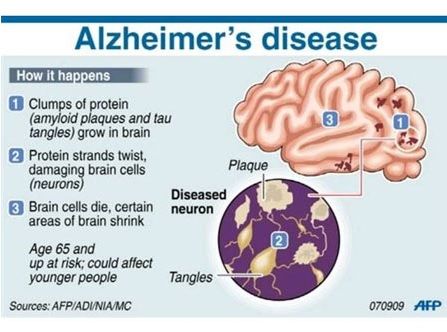
Alzheimer’s Disease is a degenerative brain disorder that affects millions of people worldwide. It is characterized by memory loss, cognitive decline, and impaired thinking and reasoning abilities. Currently, there is no cure for Alzheimer’s, but research is being conducted to explore potential treatments and ways to manage its symptoms.
The Role of CBD
Cannabidiol, or CBD, is a compound derived from the cannabis plant. Unlike its cousin THC, CBD does not have psychoactive effects, meaning it does not produce the “high” commonly associated with marijuana use. In recent years, CBD has gained attention for its potential therapeutic benefits in various health conditions, including Alzheimer’s Disease.
Neuroprotective Properties
Studies have shown that CBD has neuroprotective properties, which means it may protect the brain from damage and degeneration. Alzheimer’s Disease is characterized by the accumulation of amyloid-beta plaques and neurofibrillary tangles in the brain. These plaques and tangles disrupt normal brain function and are believed to contribute to the progression of the disease.
Research suggests that CBD may help reduce the formation and accumulation of these plaques and tangles, potentially slowing down the progression of Alzheimer’s. It is also believed that CBD may have anti-inflammatory effects, which could further protect the brain from damage.
Improvement in Memory and Cognitive Function
One of the most debilitating symptoms of Alzheimer’s Disease is memory loss and cognitive decline. Patients often struggle with remembering simple tasks, recognizing familiar faces, and processing information. However, preliminary research suggests that CBD may have the potential to improve memory and cognitive function in individuals with Alzheimer’s.
A study published in the Journal of Alzheimer’s Disease found that CBD-treated mice showed improved recognition and spatial memory. The researchers attributed these positive effects to CBD’s ability to enhance the endocannabinoid system, which plays a crucial role in learning and memory processes.
Reduced Anxiety and Behavioral Symptoms
Alzheimer’s patients often experience anxiety, agitation, and other behavioral symptoms that can be distressing for both the individual and their caregivers. While traditional medications are available to help manage these symptoms, they often come with significant side effects.
CBD has shown promise as a potential alternative for managing anxiety and behavioral symptoms in Alzheimer’s patients. A 2019 study published in Frontiers in Pharmacology found that CBD reduced anxiety-related behaviors and improved social interactions in mice with Alzheimer-like symptoms. Additionally, CBD was well-tolerated and had minimal side effects.
Conclusion
While the research on CBD and its potential benefits for Alzheimer’s Disease is still in its early stages, the preliminary findings are promising. CBD’s neuroprotective properties, potential improvement in memory and cognitive function, and the ability to manage anxiety and behavioral symptoms make it an area of interest for further exploration.
It is important to note that more clinical trials and studies are needed to fully understand the efficacy and safety of CBD as a treatment for Alzheimer’s Disease. It is always recommended to consult with a healthcare professional before incorporating any new treatments or supplements into one’s healthcare regimen.

